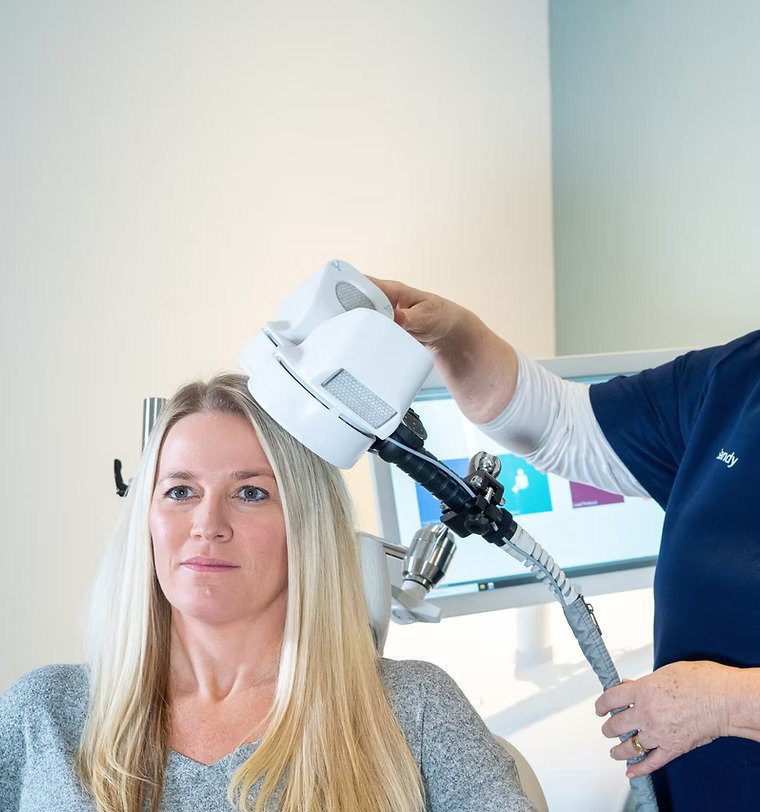Have you tried antidepressant medications for depression without finding the relief you hoped for? Deciding on a treatment plan for depression is a significant choice, and it’s common to weigh the benefits and drawbacks of different options. While medication has long been a standard approach, Transcranial Magnetic Stimulation (TMS) therapy offers a distinct alternative with a different mechanism of action. At NuBalance Behavioral Health, we help individuals understand their options, including how innovative treatments like TMS compare to traditional methods.
When comparing TMS and medication, one of the most significant differences lies in how they work. Antidepressant medications are systemic, meaning they circulate throughout your entire body to alter brain chemistry. In contrast, TMS is a non-invasive, targeted treatment.
It uses magnetic pulses to stimulate specific, underactive regions of the brain associated with mood regulation. This focused approach means the treatment is applied only where it is needed, directly addressing the neurological aspects of depression without affecting the rest of the body.
The side effect profiles of these two treatments also differ considerably. Medications can come with a range of potential side effects, including weight gain, fatigue, nausea, and sexual dysfunction, which can sometimes be difficult for individuals to tolerate.
Because TMS is not a systemic treatment, it avoids these issues. The most common side effects of TMS are minor and localized, such as mild scalp discomfort or a headache during or shortly after the session. These effects typically diminish over the first few weeks of treatment.
Another key point of comparison is the treatment regimen itself. Medication typically requires daily adherence, and it can take several weeks or even months of trying different types to find one that is effective.
TMS therapy involves a set course of treatment, usually consisting of daily sessions for four to six weeks. While this requires a time commitment, the effects can be long-lasting. Many people who complete a full course of TMS experience durable relief from their depression symptoms, often without needing ongoing treatment.
For individuals with treatment-resistant depression—meaning their symptoms have not improved with medication—TMS can be a particularly effective option.
While medications work by changing brain chemistry, TMS works by using magnetic fields to improve brain function and connectivity. This fundamental difference in approach is why many people who did not respond to multiple antidepressants find success with TMS.
In conclusion, both TMS and medication are valuable tools in the fight against depression, but they operate in very different ways. Medication offers a systemic chemical approach, while TMS provides a targeted, non-invasive neurological intervention. The choice between them often depends on an individual’s treatment history, tolerance to side effects, and specific needs.
If you’re exploring treatment options for depression or anxiety, NuBalance Behavioral Health is here to help. Our team can provide detailed information and guide you in determining if TMS is the right choice for you. Contact us today to learn more about our services, including the top TMS for PTSD Malvern, PA, offers and schedule a consultation.






